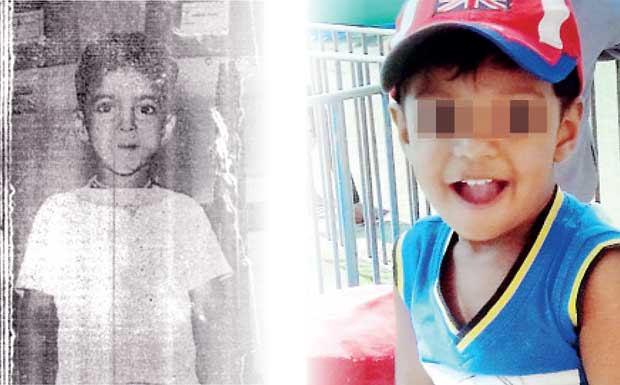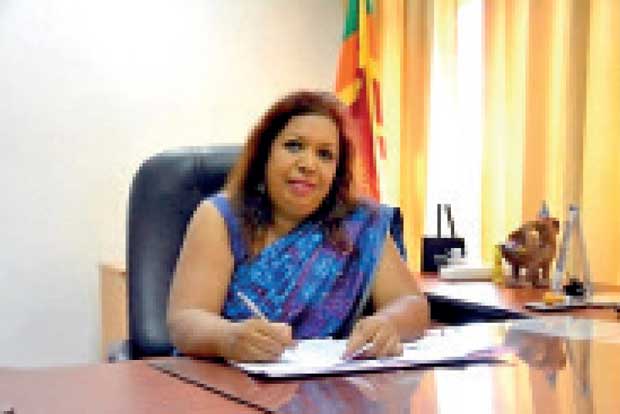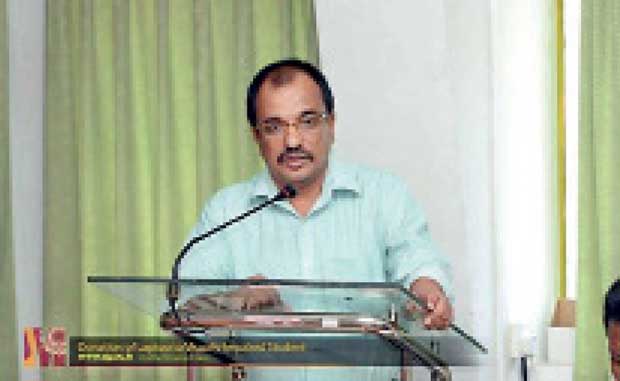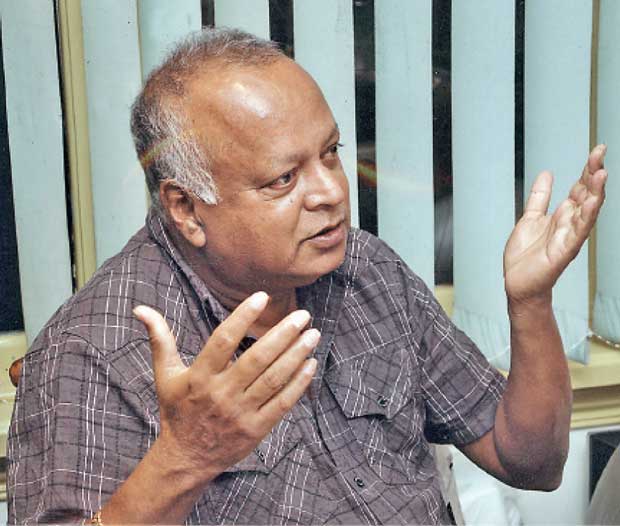Reply To:
Name - Reply Comment
 The internet is increasingly being used as a gateway for offenders to commit crimes. Social media
The internet is increasingly being used as a gateway for offenders to commit crimes. Social media  has become a contributory tool for a number of child abuses and abductions. While there are unavoidable occasions where children have to face the world alone, parents and caregivers are advised to train their children to be aware of some disturbed individuals who are capable of harming children. These individuals could be capable of physical, mental abuses or acts such as kidnapping for ransom or for human trafficking. Within such a context, self-defence has become a highly valued ability where children are concerned. With children becoming more and more independent at a very young age, incidents of child abductions are reported daily. The trend shows the lack of communication between parents and children when faced with abusive threats. Most child abductions have been reported where the perso n involved is known to the children and many abducted victims have shown a lack of self-defence.
has become a contributory tool for a number of child abuses and abductions. While there are unavoidable occasions where children have to face the world alone, parents and caregivers are advised to train their children to be aware of some disturbed individuals who are capable of harming children. These individuals could be capable of physical, mental abuses or acts such as kidnapping for ransom or for human trafficking. Within such a context, self-defence has become a highly valued ability where children are concerned. With children becoming more and more independent at a very young age, incidents of child abductions are reported daily. The trend shows the lack of communication between parents and children when faced with abusive threats. Most child abductions have been reported where the perso n involved is known to the children and many abducted victims have shown a lack of self-defence.
Recently we came across a rather rare type of a kidnapping in Sri Lanka. A two and a half-year-old child in Gampola was kidnapped upon a plan masterminded by his own uncle on May 3, with the hope of obtaining Rs.500,000 to buy a brand new motorcycle from the would-be ransom. It was later raised to Rs.3 million with the demand of supporters involved in the crime. The abducted child was found in Karadiyanaru, the suspects were found with the ransom money and the most of involved suspects are in police custody.
It was revealed during investigations that the so-called uncle had accompanied the child on the pretence of delivering lunch to the child’s father and acted as if he too was kidnapped. Even though the child had been away from his parents and family for three days, he was not harmed.
Civil aspects of international child abduction or child theft is the unauthorized removal of a minor (a child under the age of legal adulthood) from the custody of the child’s natural parents or legally appointed guardians.
MARINI DE LIVERA Chairperson National Child Protection Authority (NCPA)
Marini de Livera attributes to legal delays, a lack of deterrents, taking a long time to complete a criminal case and delays in punishing perpetrators, as reasons for a rise in child abductions over the past years.

When queried on the measures taken by the NCPA in relation to the prevention of child abduction, de Livera mentioned that they have worked towards creating awareness among children who are potential victims of abduction, stating that it was necessary for their eyes to be opened regarding this matter as children who will have to defend themselves when facing such a circumstance.
“People always point fingers at parents and schools saying that they are responsible for the protection of children. This may be true to some extent but it is also the responsibility of the child to be aware of such situations and act accordingly to prevent kidnappings and getting themselves out of such predicaments and escaping to safety. In order that the child could do so, awareness and caution regarding such situations have to be raised and they have to be educated and trained on procedures to be followed if such an occasion arose. With this intention, we at NCPA conduct awareness programs in schools and villages at district levels.”
She also went on to say that a child from a young but comprehensible age should be trained in such a way that he or she may possess the skills of identifying the tell tale signs of an unsafe environment, to avoid gifts from strangers and only to confide in people who are trust bound which for them would basically be their parents. We live in a strange time where one cannot even trust his/her own relations now since most of the abductions that have occurred within the country have had the hands of a close relative behind them.
When the question of future steps and precautions that would be taken on behalf of the NCPA with the intention of avoiding future child abductions was posed on de Livera, she stated that conducting child outreach programs at different districts would be of the utmost importance in achieving this goal. She added that we as citizens of Sri Lanka, together form a community and as a community, we uphold ethics and values which include duties towards every single child in Sri Lanka.
“Every single person, be it a police officer, a lawyer or a doctor or any other professional, we all have to come together as a community and have a duty alike towards children regardless of the fact whether they are one’s own offspring or not. Today we live in a selfish community where people try to wash their hands off of one another. We should change ourselves. If I were also to point fingers to others and say that if a child abducted was not mine and therefore not my problem, I wouldn’t be here today. But I acted differently and ask everyone else to think wide. Think of every child as your own. We belong to the community. Every single child of this country belongs to the community and we have a duty towards every child, not just our own.”
The NCPA child helpline 1929 is a 24-hour toll free hotline open to children and parents to lodge complains when they feel that child rights are violated or threatened. In the case of child abduction, the public are advised to inform the NCPA by dialling 1929 which the NCPA notes will be strengthened further in days to come.
Once a kidnapping is notified to the NCPA, a series of steps are to be followed. The NCPA takes action by assigning their own police forces in the area and the other authorities to conduct investigations pertaining to the case. “We maintain coordination with the Police Department, media and relevant ministries.” The NCPA monitors keep close tabs along the pipeline of investigation. “If such a report is obstructed by administration, we prompt the pursuit of investigation.”
To prevent child abductions, she stressed that the key factor is to strengthen the communication channel between parents/guardian and children. She went on to say that in such a busy world today, in most families, both parents are employed and they do not get much time to spend with their children at home. In these circumstances, the time that parents and children get to spend as a family is weakened and children lose the opportunity to communicate with their parents and to confide in them if they are facing any problems. Parents/guardian will have no idea of what is going on in their children’s lives and therefore would not be able to support and protect them in any way. And by the time some misfortune takes place to the children, it would all be too little, too late.
“Parents/guardians have to be cautious as to whether their children are vulnerable. Contacts between the child and parent/guardian have to be frequently established. Children have to be made aware of their inner circle which parents are a part of to whom they should be able to confide in everything. They have to be made cautious of the dangers of strangers and should be educated in being able to tell if someone displays strange behaviour and how to act in such situations. The basic knowledge on how to deal with strangers has to come from the parents. The child should also be encouraged to speak up and disclose everything to their parents so that parents are aware of what is going on with the child on a daily basis. Therefore, we stress communication is the key.”
Kidnapping is a serious crime and the parents/guardians of the victims are advised to act tactfully, especially in the involvement of ransom. The police have to be notified. As kidnapping is no child’s play, it is also advised to contact the NCPA using the toll free helpline available to the public for securing more reinforcements in the intention of increasing the probability of one’s chances in finding the child victim safe and sound. It is quite easy to understand the emotional turmoil that a parent/guardian goes through when their child has been kidnapped. But it is always advised to keep calm and act with a cool mind no matter how panic-stricken a parent may feel. The NCPA Chairperson also advises parents on the steps that they have to follow under the circumstance that their child is kidnapped. 47 complaints of kidnapping have been made in 2017.”
“My advice is to inform and follow up on the investigations and constantly keep in contact with the relevant authorities such as the police, lawyers, and officers from NCPA.”
NCPA is the foremost authority in Sri Lanka that acts for the regulation and coordination of actions against all forms of child abuses by formulating necessary policies for protection of children in the country with the intentions of child protection, prevention of child abuses, and rehabilitation of victimized children and reintegrating them to the society.
PROF. MAYURA SAMARAKOON Head of Department of Sociology and Anthropology, University of Sri Jayawardenapura
“Child abductions have increased rapidly in recent times. Elevated sexual interest in the society, using internet and preferring to watch sexual content often are leading causes responsible for this calamity.” Prof. Samarakoon described.

“The young generation has a tendency to remain single until their 30’s. It is evident from research, that males marry around the age of 33 while females do around 32. The average Sri Lankan youth gets married in their 30s. Postponing marriages are results of increased interest in education and employment afterwards. The duration between completing education and being stable in an employment is lengthy. Postponing marriages won’t go hand in hand with sexual desires, as the latter are fulfilled without delaying.”
“The general health among older people is getting better day by day, in comparison with the past. The older males are getting stronger and healthier. Sexual needs of older males are neglected by their female partners, led by culture and certain norms such as not indulging in sex when the children are grown up. Most of the time, older parents sleep in different compartments or one parent is far away from the other. Therefore, avoiding sex in old age could also be seen as a leading contributory factor for increasing child abductions. Children are abducted mostly by their grandfathers,” he said emphasizing a bitter truth.
“Parents losing interest in their children is yet another cause for increased child abductions. Parents in modern society are highly attached to their profession and they assume earning more money would benefit their children. It is not the amount of money that matters or children appreciate, but the time their parents spend with them really matters. Lack of attention, loss of love and consideration from the parents tempt children to get close to an elder readily giving attention and love,” the professor explained.
“Child-centred reality TV shows are attracting parents, who try to send their children to any TV show regardless of the impacts or unnecessary sexual attraction on the children. And of course they are acting like mini versions of adults exhibiting provocative behaviour instead of being their true child selves.” he noted.
Commenting on an identified level of society where the child abuse has increased, Prof. Samarakoon said; “Most abducted children belong to the middle-class and their parents are employed. Except the middle-class, the farming villages in dry zone such as Anuradhapura and Polonnaruwa record a high level of child abuse. Underage marriages are common; which is likely amounts to child abuse. Extreme poverty forces underage marriages. People in this society are inconsiderate of their children’s safety and protection and children are under the guardianship of a neighbouring family or relatives.”
“Daycare centres have become the ultimate solution for employed parents/guardians to keep their children safe while they are away at work. Daycare centres could be dangerously abusive in the future, if the responsible people do not pay considerable attention on activities that happen there. Yet, evidently children are mentally and physically abused in daycare centres for the convenience of employers. Some daycare centres schedule one hour for sleeping after lunch in their timetable which is completely an abuse. It is inessential for children below the age of five to sleep after the lunch as they are very active and they are in a critical period of mental and physical development. This activity would affect badly on their future. Therefore, the responsible officials should be well aware of what happens in daycares, especially the NCPA. And there’s no background or qualifications are required to open a daycare centre, as anyone interested can.” Prof. Samarakoon said.
Describing the behaviour of an abducted child he noted: “Children will reveal the abuses only to a very close person in their lives. Usually they are threatened or cheated by the abuser for not revealing anything. The mental damage happened to them won’t be revealed unless they are diagnosed for a mental illness later at some point in their lives.”
Saman Kumara case is recorded as the first ever child kidnapping - turned murder case in Sri Lankan history. He was kidnapped, murdered when the perpetrators demanded for ransom while he was dead and buried.
Saman Kumara (14) was the youngest son of a wealthy merchant in Mathugama. On April 5, 1983, he left home early in the morning for school. He met Dharmasiri, a family friend, on the way and he was taken apparently to the school. Saman would have never thought that Dharmasiri would take him to Bopitiya mountain and kill him. After the murder of the student, an unknown letter reached his father demanding Rs. 1.5 million and threatening to harm the child if the family dared inform the police. The whole village was looking for the lost student and murderer Dharmasiri also took part in the search. People had noticed an unusual behaviour in Dharmasiri who was subsequently arrested and questioned to reveal the killing of Saman Kumara who was murdered and buried in a slope of a mountain. B.A. Dharmasiri and his partner of crimes, Pitigalage Premarathna were jailed for many years.
 On February 12, 1958, three-year-old Jagath Kumara was kidnapped from his home in Munagama in Horana and the kidnapper demanded Rs.12,000 as ransom. Two days later, the police found the child left in a dispensary yard in Grandpass. The child appeared to be unharmed nor abducted as he had said that he visited his aunt’s home. Later on, the victim’s wife had commented on his experience to a weekly Sunday newspaper, saying that, even though they had pointed a gun three times threatening to kill him, he had asked for the gun thinking it was a toy.
On February 12, 1958, three-year-old Jagath Kumara was kidnapped from his home in Munagama in Horana and the kidnapper demanded Rs.12,000 as ransom. Two days later, the police found the child left in a dispensary yard in Grandpass. The child appeared to be unharmed nor abducted as he had said that he visited his aunt’s home. Later on, the victim’s wife had commented on his experience to a weekly Sunday newspaper, saying that, even though they had pointed a gun three times threatening to kill him, he had asked for the gun thinking it was a toy.